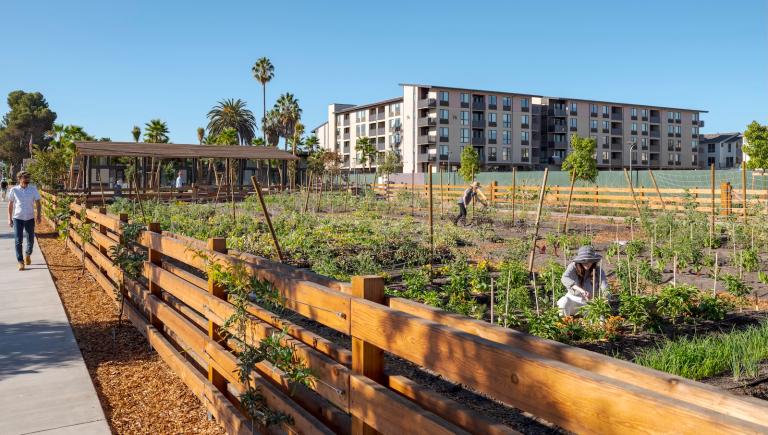 The first official day of the Rio+20 Earth Summit brought clouds, light rain, and a whole lot of sad-face among those who have worked for months to make the meeting a success. The overwhelming feeling here, even as world leaders and celebrities rolled in for the official pomp and circumstance, was that the summit was over even before it began. Still, not everyone was despondent.
The first official day of the Rio+20 Earth Summit brought clouds, light rain, and a whole lot of sad-face among those who have worked for months to make the meeting a success. The overwhelming feeling here, even as world leaders and celebrities rolled in for the official pomp and circumstance, was that the summit was over even before it began. Still, not everyone was despondent.
The final “outcome document,” to be signed by heads of state at the end of the week, was “closed” to changes Tuesday night, and while there is a chance that it could be opened for further discussion, Brazilian leaders, who are shepherding the document to completion, have stated that they don’t intend to let that happen. By most accounts, the agreement is a great disappointment.
“We all know what needs to be done, but we can’t get it done,” said John Adams, the co-founder of the Natural Resources Defense Council, who was among those who attended the very first international environmental summit in Stockholm, Sweden, in 1972. “We can’t get government to work.”
“Unfortunately, the political and economic conditions we’re confronting today are not very conducive to the kind of action we saw in 1992” at the first Rio Earth Summit, said Maurice Strong, a longtime U.N. undersecretary general who was a key player in the 1972 meeting and is credited with much of the success of the ’92 summit. “Rio+20 is probably not going to have the results we were hoping for.”
Actor and conservationist Edward Norton was more blunt. “Five hundred years from now, people will wonder, ‘What were they thinking? As the fundamental fabric of life unraveled beneath their feet, they did nothing,’” Norton told a crowd gathered to watch as the Equator Prizes were doled out to grassroots conservation leaders from around the world.
Even the head of the United Nations Environment Programme, Achim Steiner, struck an apologetic tone. “Friends, please don’t give up,” he told the crowd. “For every person on this stage, there are millions more who count on us.”
“We all know this wasn’t the meeting where world governments were going to rise from the ashes,” Steiner said after the ceremony. “They did what they could, but it was not enough.”
Among the shortcomings of the final document: Efforts to strengthen the United Nations Environment Programme failed in the face of opposition from the United Sates delegation (which argued, probably correctly, that the Senate would never approve such a move). The document also fails to hold corporations accountable for bad behavior, as civil society groups had hoped. Language on ocean protection is weaker than conservationists wanted, and efforts to include language about women and reproductive health — which are key to creating healthy, sustainable societies, were unsuccessful. The negotiators couldn’t even agree to a definition of “green economy,” instead leaving it up to individual nations.
As the endless cavalcade of dignitaries and heads of state took the mike to bloviate about the importance of sustainable development and creating a green economy for the globe, thousands of protesters marched in the streets of Rio to show their discontent. “The text as it stands is completely out of touch with reality,” activist Leida Rijnhout wrote to the heads of state on behalf of environmental and social justice groups that gave input on the document. “If you adopt the text in its current form, you will fail to secure a future for the coming generations, including your own children.”
But there was at least one longtime summiteer who was seeing some silver linings to this dark cloud. Felilx Dodds, executive director of the Stakeholder Forum for a Sustainable Future, says that the final agreement sets the stage for real progress on protecting oceans, and creates the framework for a set of sustainable development goals that should be adopted in 2015. He is also heartened by the initiative he has seen from cities and youth groups.
Beyond that, Dodds sees a fundamental power shift from developed countries in the north to the developing world in the south. “The developed world had to be dragged to the table by Brazil, South Africa, and other developing countries,” he said. “The emerging economies are driving the agenda now — because they can see what’s happening” to the environment.
Leadership from the South broke through two years of inertia, according to Dodds. “After [the] Copenhagen [climate talks in 2009], sustainable development was dead,” he said “This summit brought the family back together. We now have a frame of discussion about how we change the economic drivers, and what we do moving forward.”
John Adams, for his part, was also impressed with the many young people who took part in the process — young people who are now battle hardened and angry. “Coming out of this mess, we’ll see the future of the environmental movement,” he said.
Even Ed Norton couldn’t help but crack a few smiles at the Equator Prize ceremony. It was hard not to be cheered by the winners, who had flown in from isolated outposts around the planet for what must have seemed to them like the Oscars. As the ceremony came to a close, beloved Brazilian guitar player and singer Gilberto Gil walked onto the stage. As he crooned, the crowd sang with him. On the stage and in the audience, they danced.
The Earth Summit continues today and tomorrow with more speechifying and ceremony. City leaders have declared a school holiday in order to keep the roads clear for dignitaries and their motorcades. Traffic in the tight streets was lighter yesterday than any other day this week. The beaches, on the other hand, were bustling with kids chasing each other around the sand, boogie boarding, and enjoying few days off.




